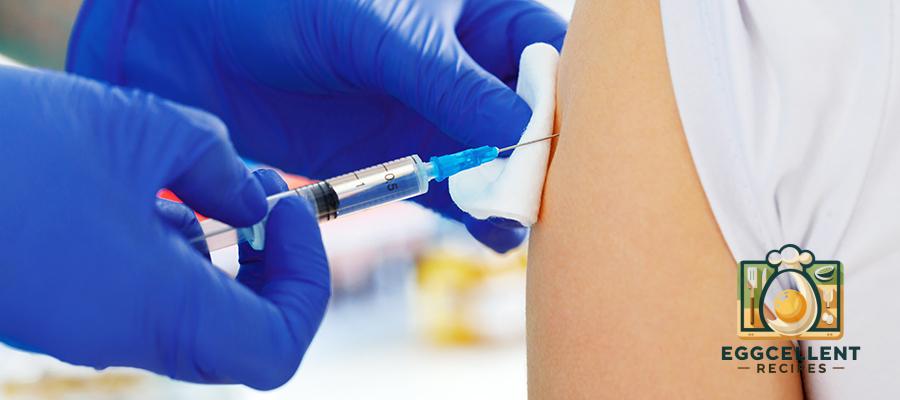
Vitamin B12, also known as cobalamin, is an essential nutrient that plays a critical role in many of the body’s functions, including nerve function, red blood cell production, and DNA synthesis. Despite its importance, Vitamin B12 deficiency is relatively common, especially among older adults, vegetarians, vegans, and individuals with certain medical conditions. Left untreated, a deficiency can lead to serious health complications. In this article, we’ll explore the signs and symptoms of Vitamin B12 deficiency to help you recognize if you or someone you know might be at risk.
Why Is Vitamin B12 Important?
Vitamin B12 is crucial for:
- Red Blood Cell Formation: It aids in the production of red blood cells, which carry oxygen throughout the body.
- Neurological Function: It maintains the health of nerve cells and helps in the synthesis of neurotransmitters.
- DNA Synthesis: It plays a role in creating and repairing DNA, the genetic material in all cells.
- Energy Production: It assists in metabolizing fats and carbohydrates for energy.
Because the body doesn’t produce Vitamin B12 on its own, it must be obtained through diet or supplements. B12 is naturally found in animal products like meat, dairy, and eggs, making deficiency more common in people who consume little to no animal products.
Common Causes of Vitamin B12 Deficiency
- Dietary Intake: Vegans and vegetarians are at higher risk due to limited consumption of animal products.
- Absorption Issues: Conditions like pernicious anemia, celiac disease, Crohn’s disease, or weight loss surgeries can impair absorption.
- Age: Older adults may have decreased stomach acid production, affecting B12 absorption.
- Medications: Certain medications like proton pump inhibitors and metformin can interfere with B12 absorption.
- Alcohol Abuse: Excessive alcohol intake can affect nutrient absorption and utilization.
Key Symptoms of Vitamin B12 Deficiency
Vitamin B12 deficiency can develop slowly, causing symptoms to appear gradually and intensify over time. Alternatively, it can come on relatively quickly. Recognizing the signs early can help prevent complications.
1. Fatigue and Weakness

One of the earliest and most common symptoms is persistent fatigue and weakness. This occurs because the body lacks enough red blood cells to transport oxygen efficiently.
- Description: Feeling tired despite adequate sleep, weakness in muscles, or shortness of breath during routine activities.
- Why It Happens: Reduced red blood cell production leads to less oxygen reaching tissues and organs.
2. Pale or Jaundiced Skin

A lack of red blood cells can cause the skin to appear pale. In some cases, the breakdown of red blood cells leads to an excess of bilirubin, causing a slight yellowing of the skin and eyes (jaundice).
- Description: Pale complexion, possibly with a yellow tinge in the skin or whites of the eyes.
- Why It Happens: Insufficient red blood cells and increased bilirubin from their breakdown.
3. Numbness and Tingling (Paresthesia)
Vitamin B12 is essential for nerve health. Deficiency can lead to nerve damage, resulting in sensations of pins and needles, numbness, or tingling in the hands and feet.
- Description: Prickling, tingling, or numbness in extremities, often starting in the hands or feet.
- Why It Happens: Damage to the protective covering of nerves (myelin sheath) due to insufficient B12.
4. Difficulty Walking and Balance Problems

As nerve damage progresses, it can affect coordination and balance, increasing the risk of falls.
- Description: Unsteady gait, difficulty walking straight, or trouble with balance and coordination.
- Why It Happens: Impaired nerve function affects muscle control.
5. Cognitive Difficulties

B12 deficiency can impact mental functions, leading to memory loss, confusion, or even depression and mood changes.
- Description: Difficulty concentrating, memory lapses, confusion, irritability, or depressive symptoms.
- Why It Happens: Vitamin B12 is vital for brain health and neurotransmitter production.
6. Glossitis and Mouth Ulcers

Glossitis is inflammation of the tongue, making it appear swollen, red, and smooth. Mouth ulcers or sores may also develop.
- Description: Painful, red tongue; smooth tongue surface; mouth sores; difficulty swallowing.
- Why It Happens: Impaired DNA synthesis affects cells in the mouth, leading to inflammation.
7. Heart Palpitations and Shortness of Breath

Anemia caused by B12 deficiency forces the heart to work harder to circulate oxygen, leading to palpitations and breathlessness.
- Description: Feeling like your heart is racing or pounding, especially during physical activity; shortness of breath even at rest.
- Why It Happens: The heart compensates for reduced oxygen-carrying capacity by beating faster.
8. Vision Disturbances

In severe cases, optic nerve damage can occur, leading to blurred or disturbed vision.
- Description: Blurred vision, double vision, sensitivity to light, or even vision loss in extreme cases.
- Why It Happens: Nerve damage affects the optic nerve responsible for sight.
9. Gastrointestinal Issues

Some people experience digestive problems such as nausea, vomiting, diarrhea, loss of appetite, or weight loss.
- Description: Upset stomach, cramping, changes in bowel habits, unexplained weight loss.
- Why It Happens: B12 deficiency affects the digestive tract lining and metabolism.
10. Mood Changes

Deficiency may lead to mood swings, increased irritability, anxiety, or depression.
- Description: Feeling down, anxious, or unusually irritable without a clear reason.
- Why It Happens: B12 plays a role in serotonin production, a neurotransmitter that regulates mood.
Diagnosing Vitamin B12 Deficiency
If you suspect you have a B12 deficiency, consult a healthcare provider. Diagnosis typically involves:
- Blood Tests: Measuring B12 levels, complete blood count (CBC), and sometimes methylmalonic acid (MMA) and homocysteine levels, which can be elevated in deficiency.
- Physical Examination: Checking for physical signs like pale skin, rapid heartbeat, or neurological symptoms.
- Medical History: Discussing dietary habits, medications, and any underlying health conditions.
Treatment Options
Treatment aims to restore adequate B12 levels and address underlying causes.
1. Dietary Changes

- Increase B12 Intake: Consume more B12-rich foods such as:
- Animal Products: Beef, liver, poultry, fish, eggs, and dairy products.
- Fortified Foods: Cereals, plant-based milks, and nutritional yeast fortified with B12.
- Considerations for Vegetarians/Vegans: Since plant sources are limited, fortified foods or supplements are often necessary.
2. Oral Supplements

- Over-the-Counter B12 Supplements: Available in tablets, capsules, or sublingual forms.
- Dosage: Consult with a healthcare provider for appropriate dosing based on severity.
3. Vitamin B12 Injections

- Intramuscular Injections: Used for severe deficiencies or absorption issues.
- Frequency: Initially frequent (daily or weekly), then maintenance doses monthly or as prescribed.
4. Treat Underlying Conditions

- Address Absorption Issues: Treat gastrointestinal conditions like celiac or Crohn’s disease.
- Medication Review: Adjust medications that interfere with B12 absorption, if possible.
5. Monitoring and Follow-Up

- Regular Blood Tests: To monitor B12 levels and adjust treatment as needed.
- Symptom Assessment: Ongoing evaluation of symptoms to ensure improvement.
Preventing Vitamin B12 Deficiency
- Balanced Diet: Include adequate amounts of B12-rich foods in your diet.
- Supplements: Consider taking B12 supplements if you’re at risk due to dietary restrictions or medical conditions.
- Regular Check-Ups: Especially important for older adults, vegetarians, vegans, and those with absorption issues.
When to See a Doctor
Early detection is crucial to prevent irreversible damage. Consult a healthcare provider if you experience:
- Persistent fatigue or weakness.
- Neurological symptoms like numbness or tingling.
- Cognitive difficulties or mood changes.
- Any combination of the symptoms mentioned.
Final Thoughts
Vitamin B12 deficiency is a manageable condition when caught early. Recognizing the symptoms is the first step toward effective treatment. Whether through dietary changes, supplements, or medical intervention, restoring adequate B12 levels can significantly improve quality of life and prevent long-term complications.
Maintaining awareness of your nutritional intake and paying attention to your body’s signals can help keep you healthy and energized. If you suspect a deficiency, don’t hesitate to seek medical advice for proper diagnosis and personalized treatment.






